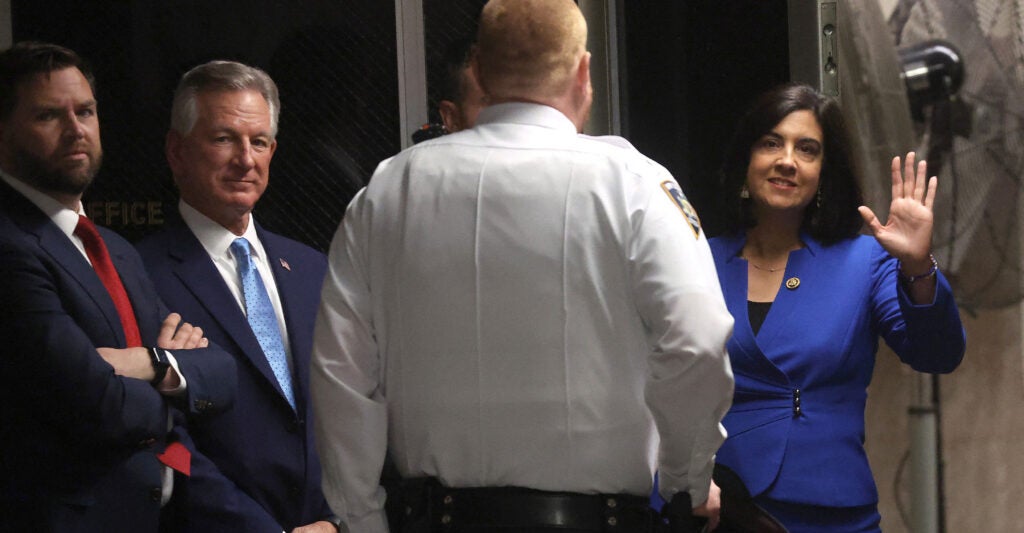Having served on three Manhattan juries, I would not be surprised if the 12 men and women hearing New York v. Donald J. Trump acquit him of all charges.
During two civil actions and one criminal case, my fellow jurors were serious, professional, and movingly civic-minded. A quiet, solemn patriotism infused our deliberations. Several jurors said that we should respect the justice system because, someday, we might need it to respect us.
My first case was a medical-malpractice lawsuit involving a botched abortion. We empathized with a woman wounded by her doctors, but her lawyer did not prove negligence. So, we backed her physicians.
“But we’ve got to give her something,” one juror insisted.
Others instantly rebuked him.
“That’s not how it works!” one said. “I feel sorry for her, too,” another admitted. “But her lawyer never made her case.”
So, we sent the plaintiff home without a penny.
Next, we deliberated intensely for almost three days before concluding that a Harlem drug counselor never demonstrated his defamation-of-character claim against his employers. My sympathetic pleas went unheeded, and he left empty-handed.
Finally, in her closing argument, a criminal prosecutor displayed a CD-ROM of a police dispatcher’s “Be on the lookout” announcement after an armed robbery. When we asked the judge to play that recording, he told us that it was not in evidence.
Disgusted by this prosecutorial deception, we instantly and angrily acquitted the defendants. Minutes later, as foreman, I proudly announced our verdict in court.
These three cases confirm that Manhattan juries are sober and perfectly capable of fairness.
That is good news for Trump.
A jury of levelheaded Manhattanites would appreciate these facts that verify the profound vacuity and fundamental unfairness of District Attorney Alvin Bragg’s “case” against Trump:
- An April 25, 2023, U.S. Justice Department Memorandum of Understanding with the Federal Election Commission leaves Bragg powerless to prosecute this matter. “The Department has exclusive jurisdiction over criminal enforcement of the federal campaign finance laws,” the memorandum states.
“The Commission has exclusive jurisdiction over civil enforcement,” the memo says.
Nowhere does this federal rule grant local prosecutors authority to enforce federal election laws. Thus, Bragg’s case is a shack built atop a cloud of helium.
- Bragg indicted Trump on April 4, 2023, four months after the statute of limitations expired on the corresponding Class E felonies.
- Bragg skirted the statute of limitations by claiming that Trump falsified business records to commit a second violation. After two weeks of this trial, that second crime remains a mystery.
- Prosecutors described a “catch-and-kill scheme” through which the National Enquirer bought the rights to stories that might embarrass Trump and then buried them. Rather than a plot to influence the 2020 election, the Enquirer routinely caught and killed stories about Trump—and other newsmakers. More important, “catch and kill” might be dodgy, but it is not illegal.
- Former nude thespian Stormy Daniels signed a nondisclosure agreement promising quietude about consensual sex that Trump and, at various times, Daniels herself deny ever sharing. NDAs are perfectly legal. I have signed at least three (while dressed), and nondisclosure language has appeared in numerous contracts I have endorsed. Confidential out-of-court settlements operate similarly and legally.
- Former Trump attorney Michael Cohen paid Daniels to clam up about her alleged intimacy with Trump. Again, sex or no sex, it is legal to pay people to ignore journalists (although buying silence before law enforcement is obstruction of justice).
- Trump’s checks allegedly reimbursed Cohen for payments to Daniels. It is perfectly legal for a client to repay his attorney funds advanced in a lawful transaction.
- Bragg claims that Trump should have paid for this private matter with campaign cash. That would have been illegal. Instead, Trump legally used his own money.
- Trump faces 34 counts of alleged falsification of business records because his bookkeepers posted ledger entries for checks to Cohen as “legal expenses.” Would Bragg prefer false descriptions like “plumbing supplies” or “marble tiles”? Trump faces prison for reporting legal expenses as “legal expenses,” which is legal.
With 48% of registered voters telling Reuters-Ipsos last month that Trump’s Kafkaesque cases are “excessive and politically motivated” (41% disagree) even a Manhattan jury could scrap Bragg’s contraption.
My memories of jury duty, including within the Stalinesque building in which Trump is being persecuted, tell me that deliberating jurors could think, “I won’t vote for Trump. But I cannot convict him beyond a reasonable doubt in a shaky case about actions that are lurid, but legal.”
If just one juror agrees, this case will end with a hung jury. A second trial would be unlikely before Election Day.
And if “lurid, but legal” reflects the opinions of 12 of my fellow Manhattanites—who tend to be tough, but fair—then Trump will be acquitted on all charges and go back to where he belongs: The campaign trail.
The Daily Signal publishes a variety of perspectives. Nothing written here is to be construed as representing the views of The Heritage Foundation.
